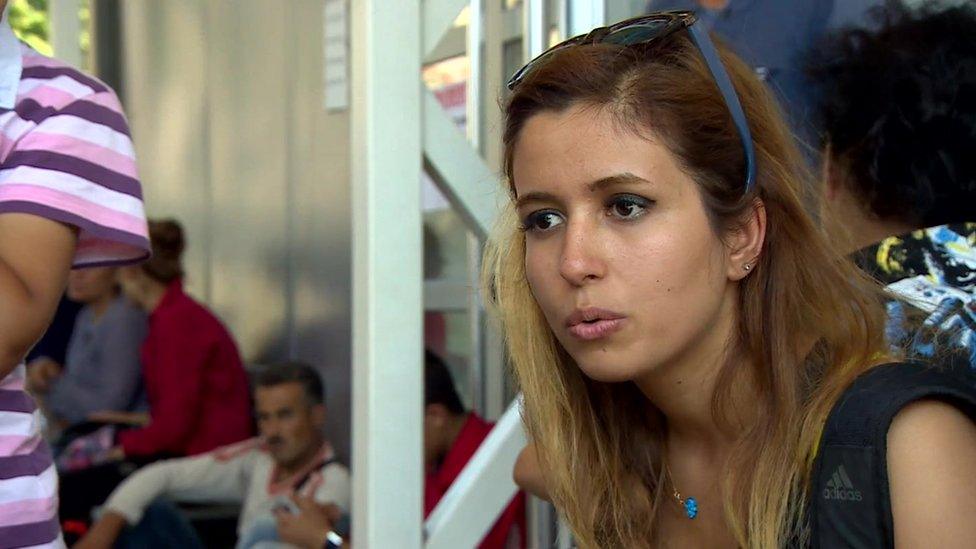Child asylum seekers look to UK for a better life
- Published
Andrew Bomford speaks to a 16-year-old Sudanese boy on his difficult journey to the UK
Why would a child leave home to take the risky journey on their own from Africa, or Afghanistan, across Europe to Britain? Radio 4's Andrew Bomford was given rare access to a children's home for unaccompanied child asylum seekers.
Shasli looks happy as he sits in the pale sunshine at a children's home near Ashford in Kent. He's been here eight weeks now, and has made lots of friends.
But ask the 16-year-old from Sudan how he got here, and why he came, and his face darkens.
"It was a very difficult journey. Every time I remember the journey and what I have been through, I get very sad and very upset."
Shasli is one of 99 teenagers currently living at the Millbank Centre near Ashford.
A former old people's home, it is a stark municipal building run by Kent County Council, which serves as a reception centre for boys aged between 16 and 18 who arrived in Britain on their own, usually by smuggling themselves onto lorries or trains across the Channel.
Kent is looking after 730 unaccompanied child asylum seekers - a number which has more than doubled since March this year.
Shasli, who is Muslim, says he left Darfur in Western Sudan with his mother and two brothers after his father was killed by Sudanese government soldiers.
They travelled together across the Sahara, as far as Libya - but there he says Libyan police forcibly separated him from his family and he has not heard or seen anything of them since.
He managed to get on board a smugglers' boat with 150 people, mostly women and children, to make the perilous journey across the Mediterranean.
"We were six days on the sea, but only had food for two days. It was very hard," he says. "There were a lot of people, and the boat was just about to sink. But we were rescued by the coastguard."
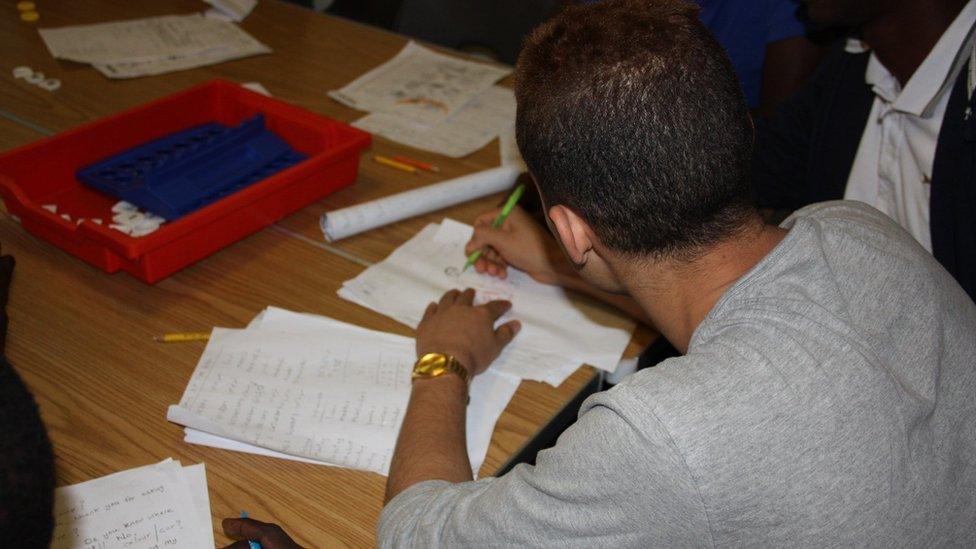
The boys living at the Millbank Centre are assessed by social workers and child psychologists
After being processed in Italy, he set out on the journey to Britain, by first hiding himself on a train to Milan, and later to Paris. In the French capital he lived under a bridge with other Sudanese for several months last winter.
Some people from a French charity gave them food, clothes, and blankets, he says. When the weather got warmer he jumped a train to Calais.
Children like him seem much older than their teenage years. They've had to grow up quickly. Most of the youngsters travelling alone are about his age, but the council is currently looking after 15 children who are under 13 and turned up in the UK on their own.
All those under 16 and all girls are placed immediately with foster parents.
Shasli describes a nightly ritual of walking miles across the Calais countryside, down railway lines, and along dark roads, looking for trains or lorries to hide in. He was often chased by the police, he says.
'Very lucky'
"One time they were chasing me and I fell down on my knee and I was hurt. The police use a kind of spray which they spray in your face. It makes you very sick. We made so many attempts and every time we were caught by the police and they brought us back."
His luck changed one night when he and three friends found a lorry carrying large sheets of sponge.
"I found a gap I could squeeze into. I covered myself with the sponge. I heard the police at the port, but they did not open the truck to search it. I was very lucky.
"In Dover I started knocking hard on the truck, and the driver opened it for me. I told the driver I wanted to hand myself over to the police, and I looked up and there they were. I was very happy because I knew I had finally got to England."
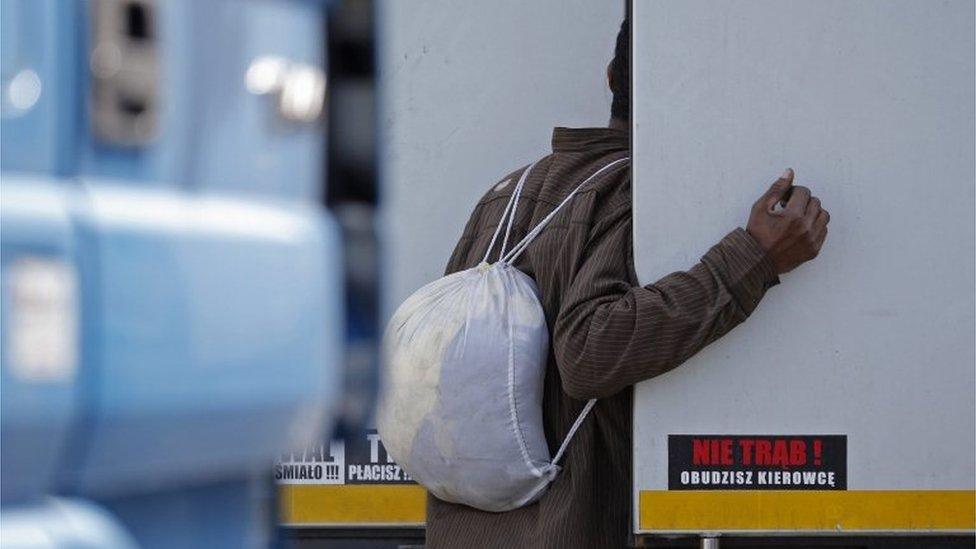
Migrants gathered at Calais often attempt to enter lorries and smuggle themselves over to the UK
Kent County Council says it spends £660 a week looking after each unaccompanied child asylum seeker like Shasli. With the surge in arrivals this year, it estimates it will cost £6.2m in total.
Most of the money is reimbursed by the government but the council complains that recently it has been left with a £5.5m shortfall. It is urging the government to devise a dispersal system so the responsibility is shared out among other local authorities around the country.
Kent County Council has been forced to hurriedly convert an old outdoor education centre near Cranbrook, and a derelict old people's home in Whitstable, into temporary accommodation for new arrivals.
"These young people have had traumatic experiences which you or I hopefully would never have to experience in our lives," says Peter Oakford, the Kent councillor responsible for children's services.
The largest group of children currently at the Millbank Centre are from Eritrea, followed by those from Afghanistan. Staff say it's quite rare that they see Syrian youngsters, because most of them tend to travel in family groups.
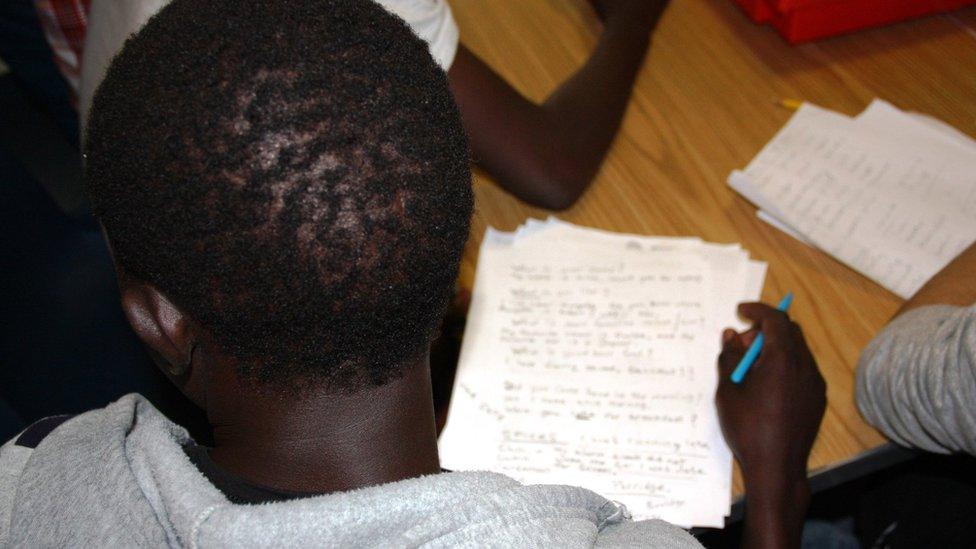
The asylum seekers are able to complete their education at school or college
During the first two months they are assessed by social workers and child psychologists. Their ages are verified as best they can, because few arrive with any documents.
Later, Shasli and three other boys gather together their few belongings and are taken to a house where they will live together and look after themselves, living off benefit payments administered by the council.
Social workers will visit and they'll get a chance to go to school or college. When 18 they can apply for refugee status.
But why was he so determined to come to the UK?
"In some European countries they do not really take care of refugees.
"But here in England I know this is a country of laws and that they do respect human beings. That's why I came here."
- Published7 July 2015
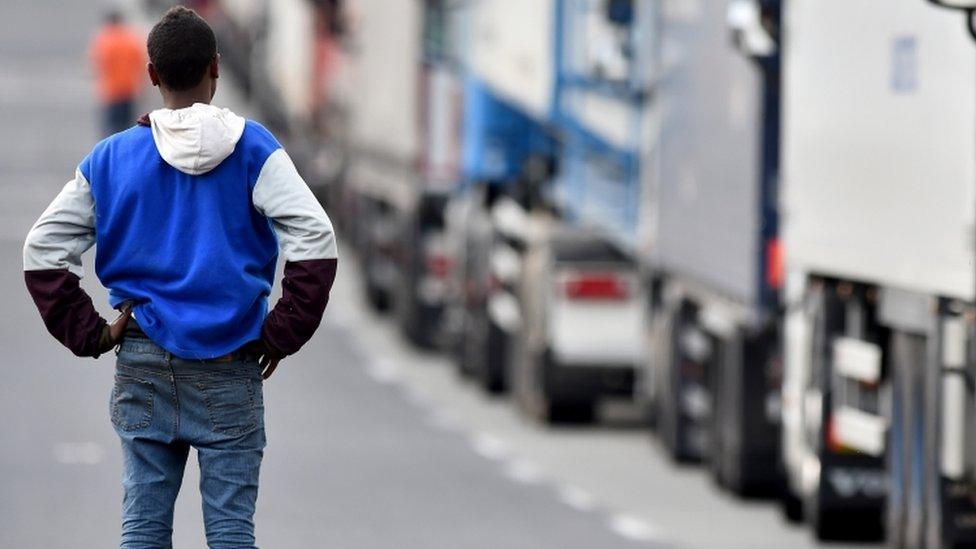
- Published4 March 2016
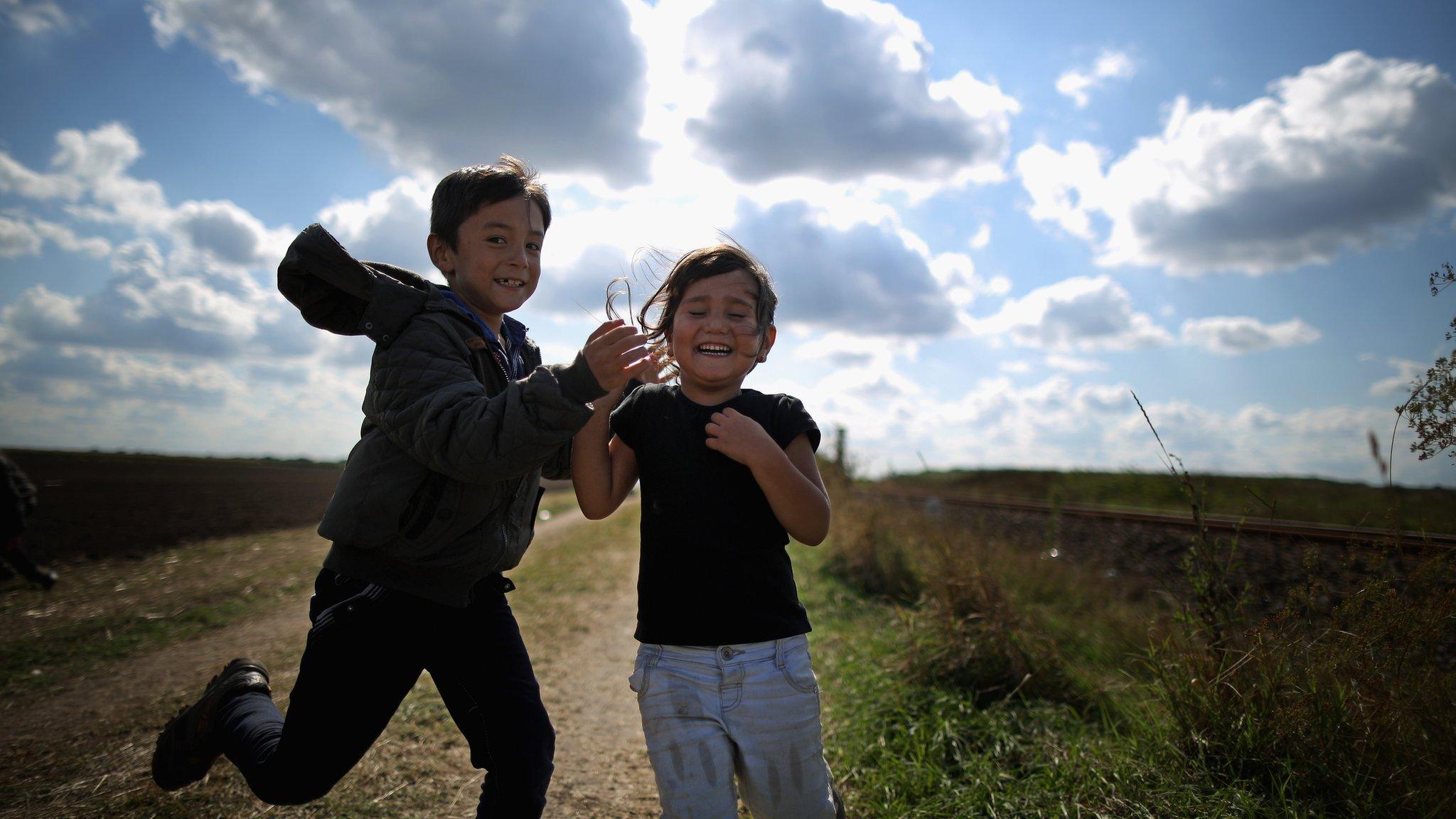
- Published1 September 2015
